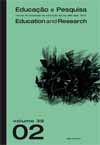Distance learning and the demise of education
DOI:
https://doi.org/10.1590/S1517-97022013000200002Keywords:
Distance learning, Virtual university, Education policy, Teacher-student relationAbstract
An analysis of the official discourse in defense of distance learning in higher education identifies the silences that structure it. On the one hand, such discourse ignores the ideological dimension of science and technique; on the other, it disregards the complexity of the pedagogical relation. The absence of such fundamental themes makes it possible to defend the application of communication and information technologies in the education process without investigating the deleterious consequences of such procedure upon the formation of those being educated. The present text emphasizes education as formation, and contrasts it with semi- or pseudo-formation as described by the philosophers of the Frankfurt School. Based on an examination of the nature of the activities included in distance courses, we question the very existence of a teacher and of a pupil under such modality of teaching, as well as of a relationship between them that would contribute to the ethical-political formation of a student aware of the power relations present in social institutions, in scientific knowledge and in professional practice. Such state of affairs demands research on the results achieved by distance courses, particularly by those that aim at the formation of teachers.Downloads
Download data is not yet available.
Downloads
Published
2013-06-01
Issue
Section
Articles
License
Authors assume exclusive responsibility for the concepts expressed in their articles, which do not necessarily reflect the journal’s opinion.
Permission to photocopy all or part of the material published in the journal is granted provided that the original source of publication be assigned.
How to Cite
Distance learning and the demise of education. (2013). Educação E Pesquisa, 39(2), 303-318. https://doi.org/10.1590/S1517-97022013000200002



